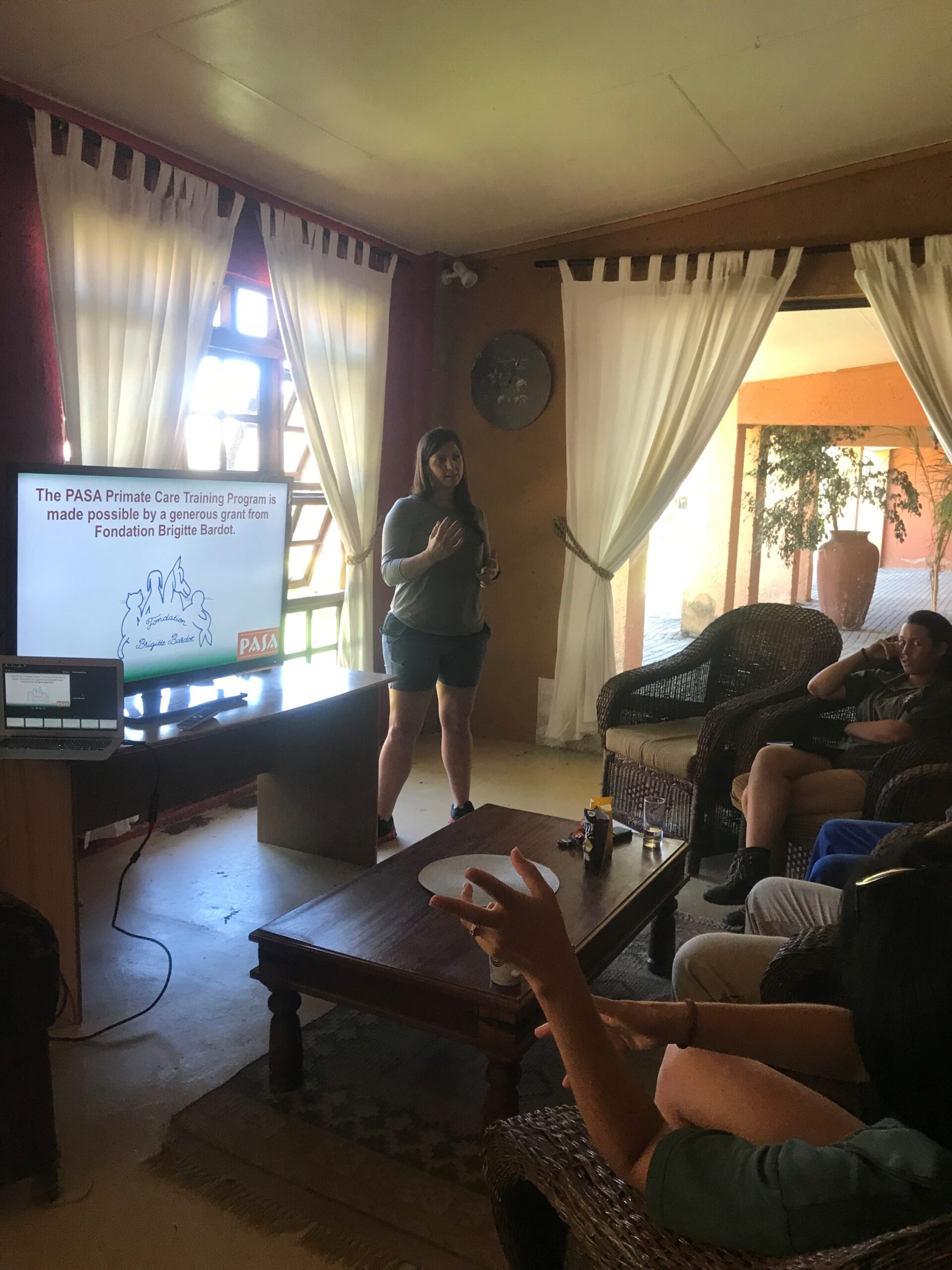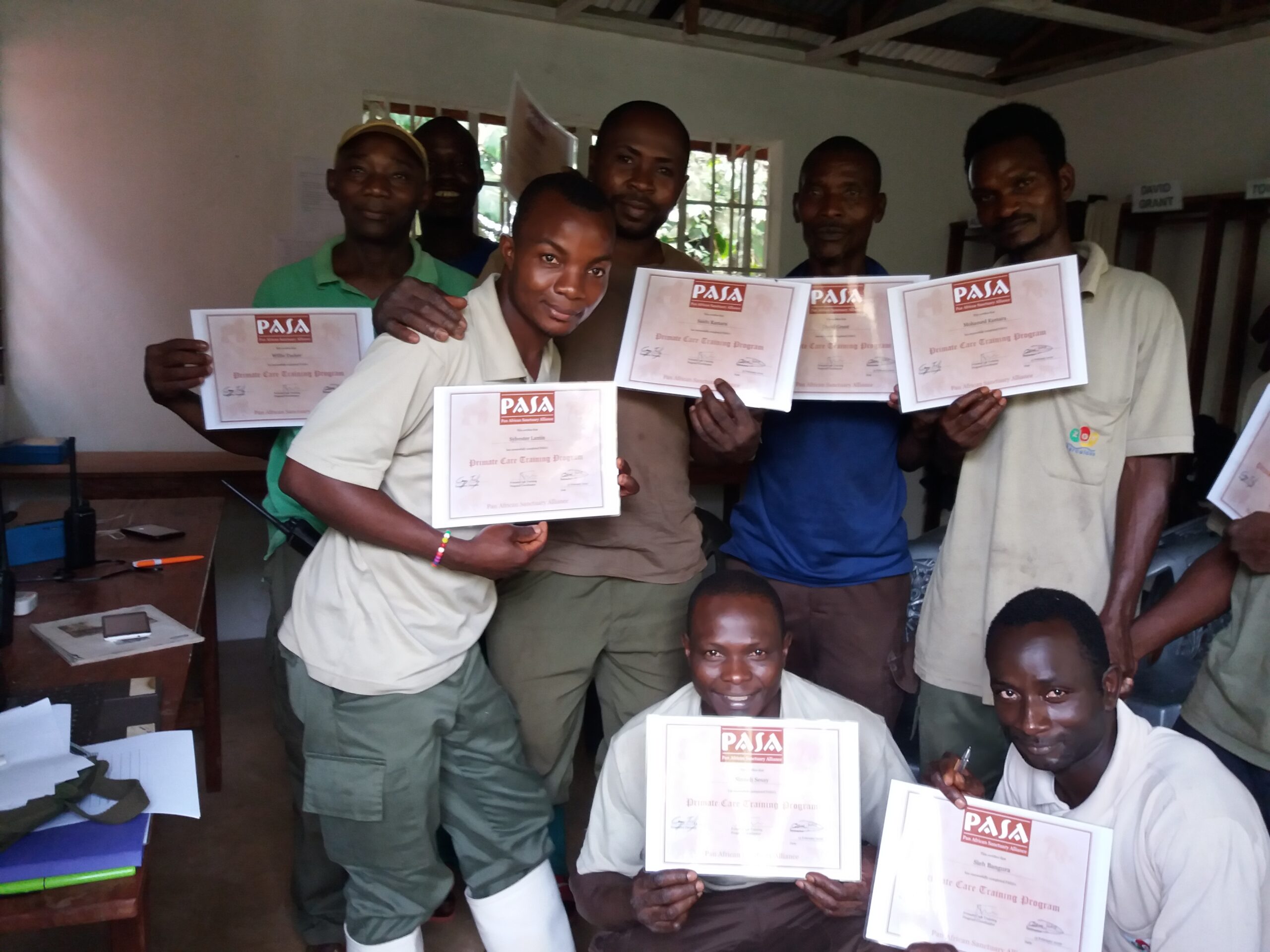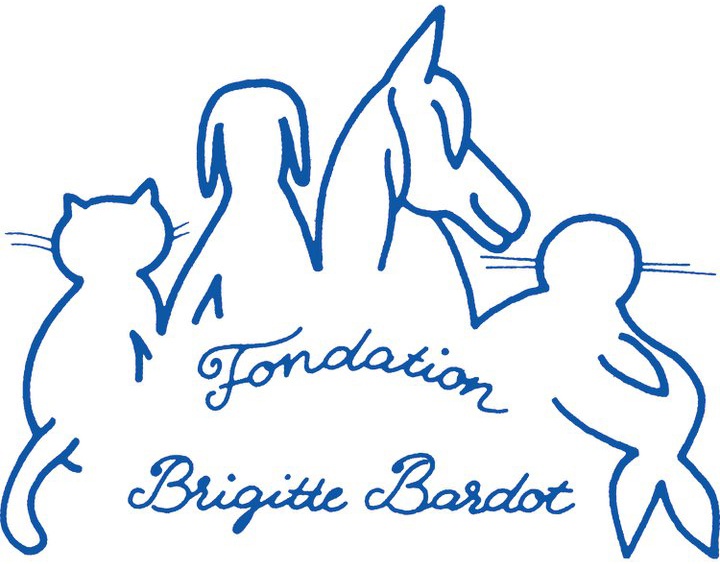Ensuring Great Care After the Rescue
The Primate Care Training Program helps
PASA members improve outcomes for rescued apes and monkeys.
By Kaitlyn Bock
Rescuing chimpanzees, gorillas, bonobos and monkeys from unthinkable cruelty is part of the day-to-day work at the 23 accredited wildlife centers that make up the PASA network. Many of the primates they rescue are still babies, who were orphaned by bushmeat hunters and wildlife traffickers. Often, confiscated primates arrive at the sanctuaries with extensive physical and emotional damage. Machete wounds, embedded bullets, and broken arms from tied ropes are common injuries sustained by primates confiscated from the illegal wildlife trade. PASA member sanctuaries are involved in countless rescue situations like these every year. In fact, in 2020, they rescued 239 primates, up 22% over 2019.
But rescuing primates tells only one part of the story. The lucky few animals brought to safety at a sanctuary have a long road of rehabilitation and recovery ahead of them.
Fortunately, PASA member organizations are dedicated to giving these primates the quality of life they need, and they are uniquely positioned to provide this vital care. For the last several years, with the support of the Fondation Brigitte Bardot, PASA has been sending highly experienced instructors to the sanctuaries to provide customized training for all animal care staff and the individual animals who need it most.
PASA’s Primate Care Training Program (PCT) seeks to produce long-term improvements to the welfare of over 3,000 great apes and monkeys at the African wildlife centers. While the sanctuaries are experts in their field, PCT offers professional training in specialized treatments, which is essential for the welfare of the animals.
This has produced significant long-term improvements in the health and wellbeing of thousands of rescued primates.
Training at a sanctuary can range from the latest best practices for enrichment, to assessments designed to evaluate an individual ape’s unique behavioral barriers. The trainers can also help sanctuary staff make changes to an animal’s daily care, with the hope that they can be successfully integrated with others of their kind.
In 2019, PCT instructor Caroline Griffis went to Uganda, where she worked with the team at Ngamba Island Chimpanzee Sanctuary to overhaul their enrichment program. A diverse enrichment schedule is vital to keep these intelligent animals interested and stimulated. Thanks to extra enrichment and positive reinforcement training, Mawa and Asega, two males who previously struggled to integrate into a social group, made incredible progress. Caregiving staff were able to collaborate with Caroline to plan their reintegration.
While enrichment or positive-reinforcement activities might appear to be simply fun for the primates, they’re designed to elicit natural behaviors that the animals would display in the wild and to steer primates towards developing healthy social bonds. This can play a critical role in helping primates recover from their traumatic pasts – and pave the way for the possibility of returning to the wild.
Mawa and Asega are just two individuals that have benefited from the specialized training provided by the PCT. The road to back to the wild may be long, but with the help of this program, the sanctuaries are able to improve the lives of thousands of primates who were rescued from the illegal wildlife trade and the bushmeat crisis.

Training gets underway, with help from the Fondation Brigitte Bardot.

Team members at Tacugama Chimpanzee Sanctuary display their PCT certificates.

